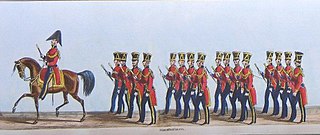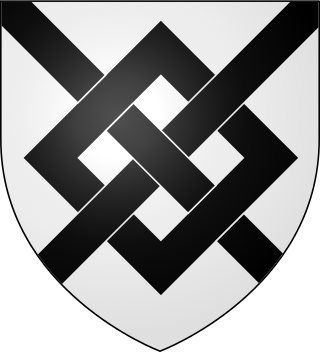
The Secretary of State for the Southern Department was a position in the cabinet of the government of the Kingdom of Great Britain up to 1782, when the Southern Department became the Home Office.

The Lord Steward or Lord Steward of the Household is an official of the Royal Household in England. He is always a peer. Until 1924, he was always a member of the Government. Until 1782, the office was one of considerable political importance and carried Cabinet rank.
The Treasurer of the Household is a member of the Royal Household of the Sovereign of the United Kingdom. The position is usually held by one of the government deputy Chief Whips in the House of Commons. The current holder of the office is Marcus Jones MP.
The Comptroller of the Household is an ancient position in the British royal household, nominally the second-ranking member of the Lord Steward's department after the Treasurer of the Household. The Comptroller was an ex officio member of the Board of Green Cloth, until that body was abolished in the reform of local government licensing in 2004. In recent times, a senior government whip has invariably occupied the office. On state occasions the Comptroller carries a white staff of office, as often seen in portraits.

The Groom of the Stool was the most intimate of an English monarch's courtiers, responsible for assisting the king in excretion and hygiene.

The Clerk of the Green Cloth was a position in the British Royal Household. The clerk acted as secretary of the Board of Green Cloth, and was therefore responsible for organising royal journeys and assisting in the administration of the Royal Household. From the Restoration, there were four clerks. Two additional clerks comptrollers were added in 1761, but one of these was redesignated a clerk in 1762.
The Board of Green Cloth was a board of officials belonging to the Royal Household of England and Great Britain. It took its name from the tablecloth of green baize that covered the table at which its members sat.

Jacob Pleydell-Bouverie, 2nd Earl of Radnor FRS FSA, styled Hon. Jacob Pleydell-Bouverie from 1761 to 1765 and Viscount Folkestone from 1765 to 1776, was a British politician who sat in the House of Commons from 1771 to 1776 when he succeeded to the peerage as Earl of Radnor.

Sir John Fortescue of Salden Manor, near Mursley, Buckinghamshire, was the seventh Chancellor of the Exchequer of England, serving from 1589 until 1603.

The King's Wardrobe, together with the Chamber, made up the personal part of medieval English government known as the King's household. Originally the room where the king's clothes, armour, and treasure were stored, the term was expanded to describe both its contents and the department of clerks who ran it. Early in the reign of Henry III the Wardrobe emerged out of the fragmentation of the Curia Regis to become the chief administrative and accounting department of the Household. The Wardrobe received regular block grants from the Exchequer for much of its history; in addition, however, the wardrobe treasure of gold and jewels enabled the king to make secret and rapid payments to fund his diplomatic and military operations, and for a time, in the 13th-14th centuries, it eclipsed the Exchequer as the chief spending department of central government.

Francis Newport, 1st Earl of Bradford PC, styled The Honourable between 1642 and 1651, was an English soldier, courtier and Whig politician.

The Knight Marshal is a former office in the British Royal Household established by King Henry III in 1236. The position later became a Deputy to the Earl Marshal from the reign of King Henry VIII until the office was abolished in 1846.

Sir William Ashburnham, 2nd Baronet was a British politician who sat in the House of Commons between 1710 and 1741.
William Ashburnham was an English army officer, landowner and MP.

Sir Lionel Tollemache, 2nd Baronet PC, of Helmingham Hall in Suffolk, was twice elected as a Member of Parliament for Orford in Suffolk, in 1621 and 1628. He had a considerable reputation as a surgeon, but is said to have made many enemies due to his "immoderate temper".
Sir Richard Browne, of Horsley, Essex and later of Sayes Court, Deptford, Kent, was an English politician.
William Thynne was an English courtier and editor of Geoffrey Chaucer's works.
John Spencer was an English courtier and Member of Parliament.
Sir William Cornwallis of Brome was an English courtier and politician.
A silkwoman was a woman in medieval, Tudor, and Stuart England who traded in silks and other fine fabrics. London silkwomen held some trading rights independently from their husbands and were exempted from some of the usual customs and laws of coverture. The trade and craft of the silkwoman was encouraged by a statute of Henry VI of England as a countermeasure to imports of silk thread, and a suitable occupation for "young gentlewomen and other apprentices".











